Taiwan Fieldwork Experiences
Nathaniel Tran bio
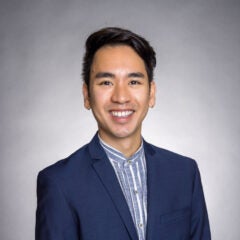
Nathaniel M. Tran, PhD is an Assistant Professor of Health Policy and Administration at the University of Illinois Chicago School of Public Health. Their research examines how public policies impact the health of LGBTQ+ populations throughout the life course and has been published in journals such as JAMA, Health Affairs, and Preventive Medicine.
Dr. Tran is traveling to Tapei, Taiwan for a 6-week research exchange in Taipei, Taiwan engaging with the Global Health Program at National Taiwan University (NTU)’s College of Public Health. This opportunity, supported by the University of Illinois System’s partnership with the University Academic Alliance of Taiwan, focuses on advancing LGBTQ+ health equity. The participant’s goals include delivering two public lectures on LGBTQ+ health policy, building collaborations with NTU faculty in public health, nursing, and pharmacy, and learning from Taiwan’s National Health Insurance system.
NT Blog
Week 1
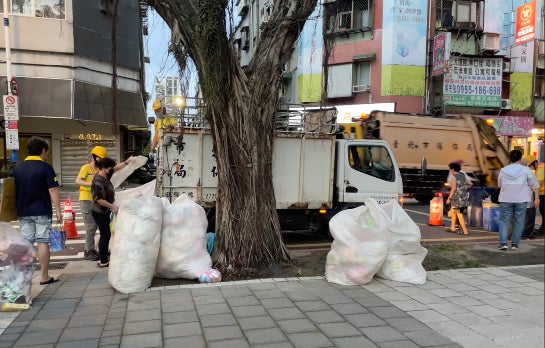
What a tremendous week it has been and I am getting settled in Taipei, Taiwan. My research exchange with the Global Health Program in the College of Public Health at National Taiwan University (NTU) is made possible by the University of Illinois System partnership with the University Academic Alliance of Taiwan.
During my 6-week visit, my goals are to 1) give two public lectures sharing my expertise about LGBTQ+ health policy, 2) establish collaborations with NTU faculty across public health, nursing, and pharmacy, and 3) to learn about approaches undertaken by Taiwan’s National Health Insurance system to advance LGBTQ+ health equity.
Conducting global health fieldwork often comes with a period of adjusting to local norms and values. In a white paper published by Taipei City Government’s Department of Environmental Protection, the city has set an ambitious goal of achieving net zero carbon emissions by 2050. As part of those efforts, the city began charging residents a small fee for city-branded bags to dispose of “general” waste. Residents can still dispose of organic waste (think of compostable goods) and recyclable waste (including flat paper, metal, glass, and certain plastics) in unbranded bags. In pilot testing, the city found that this program led to a reduction in general waste and a proportionate increase in organic and recyclable waste. In other words, if you make people pay to throw away trash but keep it free to choose more environmentally friendly options… they’ll comply!
Beyond the environmental and health impacts, the city’s waste management policy also reflects a cultural learning moment. My neighborhood does not have large communal dumpsters for residents to dispose of garbage or recycling. Instead, waste management trucks circle the city along scheduled routes throughout the week playing a friendly jingle to notify residents that it is their turn to dispose of general, organic, and recyclable waste. (Image 1)
Beyond these individual actions, the city has made comprehensive systemic reforms. One example that I have encountered is reflected in the public transportation system. In just 5 years, by 2030, the city expects all buses in the public fleet to be electric with a longer implementation period for privately owned buses.
Week 2/3
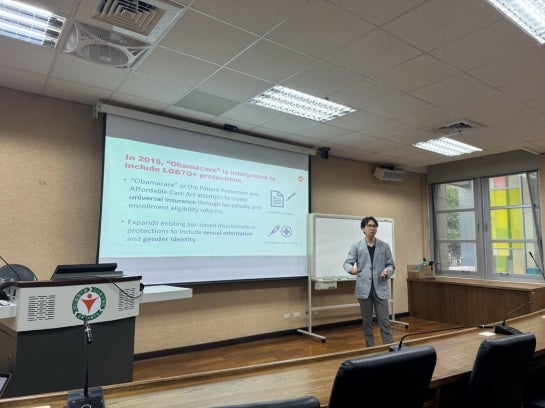
The past two weeks have been especially productive during my exchange with the Global Health Program at National Taiwan University (NTU).
A highlight was meeting Dr. Chengshi Shiu, Assistant Professor in the College of Social Work at NTU and one of the Principal Investigators of the 2022 Taiwanese LGBTQ+ Community Survey. This groundbreaking study is the largest epidemiological survey of LGBTQ+ people ever conducted in Taiwan, with over 13,000 respondents. Developed through iterative collaboration with LGBTQ+ community members and non-governmental organizations, and supported by funding from the Taiwanese government, the survey offers rich insights into the lived experiences and health needs of LGBTQ+ individuals. Descriptive results and detailed methodology are publicly available here. I hope to use this dataset to examine health disparities within Taiwan’s LGBTQ+ community—particularly among transgender, gender non-conforming, and bisexual individuals, who face distinct stressors compared to their gay and lesbian peers.
This discussion was an excellent bridge to my first public lecture at NTU, titled “Health for Whom? LGBTQ+ Rights, Data, and the Global Politics of Inclusion.” In the lecture, I critically engaged with the WHO’s 1948 definition of health as a fundamental human right for all people— highlighting the limitations of this claim for LGBTQ+ people, who are currently facing heightened political backlash. I began by examining the Patient Protection and Affordable Care Act (ACA) in 2010 (with protections clarified in 2015) which was among the first federal regulations in the U.S. to interpret sex discrimination to include sexual orientation and gender identity.
Week 2/3 Continued
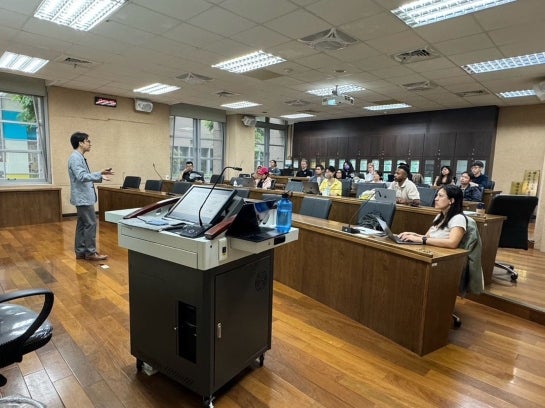
ACA protections remain fragile. I then discussed three ongoing U.S. Supreme Court cases that illustrate the instability of relying on executive agency regulation rather than legislation to secure LGBTQ+ rights:
Mahmoud v. Taylor – Do LGBTQ+ students have a right to representation in school curricula, be it a language arts class or health education?
Kennedy v. Braidwood – Can employers refuse to cover health services, particularly those commonly used by LGBTQ+ individuals?
U.S. v. Skrmetti – Can states ban gender-affirming health care for transgender people while allowing the same care for cisgender individuals?
In addition to these three cases, I introduce the 2023 Federal Evidence Agenda for LGBTQI+ Equity, a US government initiative is to improve the inclusion of LGBTQ+ people in federal data infrastructure to understand: 1) How many LGBTQ+ people are in the US, 2) How do LGBTQ+ people experience federal systems and policies, and 3) What strategies might improve the impact of systems and policies for LGBTQ+ people?
My talk emphasized the value of participatory research efforts—such as the 2022 Taiwanese LGBTQ+ Community Survey—that engage LGBTQ+ people at every stage of the research process: design, data collection, analysis, and interpretation. The survey’s findings support the work of advocates like Dr. Shiu and organizations like Taiwan Tongzhi Hotline, enabling data-informed advocacy for programs and policies that help LGBTQ+ communities thrive.
Week 2/3 Continued 2
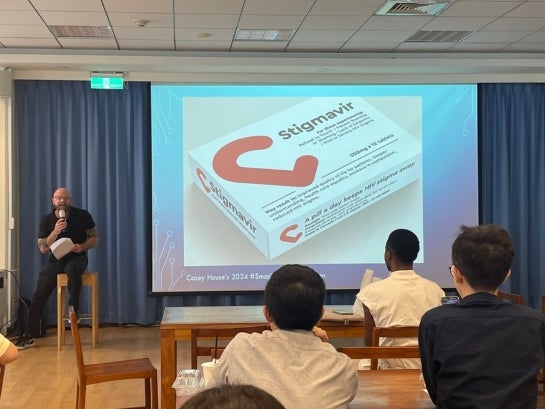
To conclude the lecture, I invited the audience to reflect on the complex risks and rewards of LGBTQ+ people sharing their identities with national governments. Audience members—including students from Taiwan, Thailand, Denmark, and the U.S., as well as NTU faculty and representatives from Taiwan Tongzhi Hotline—raised powerful questions: What happens when governments weaponize data? Could health inequities worsen without inclusive data? How do best-practices for data inclusion evolve across different cultures and countries?
I also had the opportunity to attend a lecture by Dr. Kane Race, Professor of Gender and Cultural Studies at the University of Sydney, hosted by the NTU College of Public Health. His talk, “Spoiled Subjects: Treatments of Stigma,” examined the continued relevance and limitations of the advocacy message Undetectable = Untransmittable (U=U) more than a decade after its introduction. Dr. Race argued that while U=U seeks to make clinical knowledge about HIV treatment more accessible—by affirming that individuals with an undetectable viral load cannot transmit HIV to their partners—it does not fully dismantle the stigma surrounding HIV. Importantly, the promise of U=U depends on access to treatment, which remains out of reach for many of the 40 million people living with HIV globally.
These two weeks have offered an extraordinary opportunity to explore the intersections of data, advocacy, and global health equity. I’m grateful for the conversations sparked here in Taiwan, and I look forward to continuing this exchange of ideas and practices across borders.